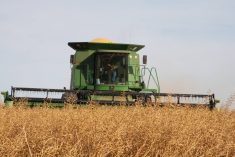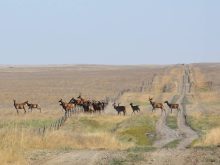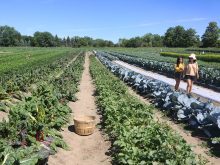Finding seed to grow a crop next year won’t be a challenge for producers like Ed Gaudet, who farms in an area of Alberta where seed supplies were tight a year ago.
Gaudet uses his own seed where he can, but also buys certified seed for his farm near Daysland. He said supplies of certified seed are adequate in his area, although seed for some of the more popular hybrid canola varieties has been disappearing fast.
“There’s lots of seed around if you’re not too demanding about what breed you want.”
Read Also

New program aims to support plant-based exports to Asia
Understanding the preferences of consumers in Taiwan and how they differ from Indonesia or Malaysia isn’t easy for a small company in Saskatchewan.
A year ago, drought in parts of Saskatchewan and Alberta had pushed down seed supplies, especially for some of the newer varieties of cereal, canola and pulses. A delayed harvest due to rains also affected seed quality in a number of areas.
The weather was more favourable this year, meaning that seed supplies and quality are generally good. Gaudet said the germination was excellent in wheat and barley that he grew on his farm this year and had tested for seed in 2004.
“Seed will not be a problem this coming year.”
That sentiment is shared by John Huvenaars, vice-president of the Alberta Seed Growers Association. However, he said there could be exceptions.
Some of the strongest demand he has seen so far has been for hard white wheat and flax seed. Some flax seed may need to be drawn from elsewhere if the demand remains strong. Interest in hybrid canola production is also keen, Huvenaars said.
Prairie farmers tend to buy part of their seed by the end of December to use the purchase as a tax deduction and to ensure they have varieties that might be in short supply. However, seed sales continue into spring as farmers adjust their planting intentions. In his area, Huvenaars has seen a trend toward the latter.
“The last few years, guys have hooked up to the drill and then they phoned to order seed.”
At Saskatchewan Wheat Pool, the manager of seed procurement said supplies of certified seed are generally good and there is also good quality. However, Darcy Rafoss said there are limited supplies for some newer crop varieties, since seed multiplication was hampered by drought over the past couple of years in Saskatchewan and the wet harvest in 2002.
The strongest demand so far has been for canola varieties, he said.
“Last year we saw a big run on everything due to concerns about shortages.”
Huvenaars said one concern for certified seed suppliers this year is that producers may have less money to spend because of the fallout from bovine spongiform encephalopathy. That could prompt them to rely more heavily on seed from their own bins rather than buy certified seed.
One of the few things upsetting Gaudet this year is the price for hybrid canola seed.
While he recognizes that the application of seed treatments makes seed more expensive, he said it’s ridiculous that prices are ranging as high as $7 per pound.
“We used to kind of dig in our heels at $2 or $3.”
















